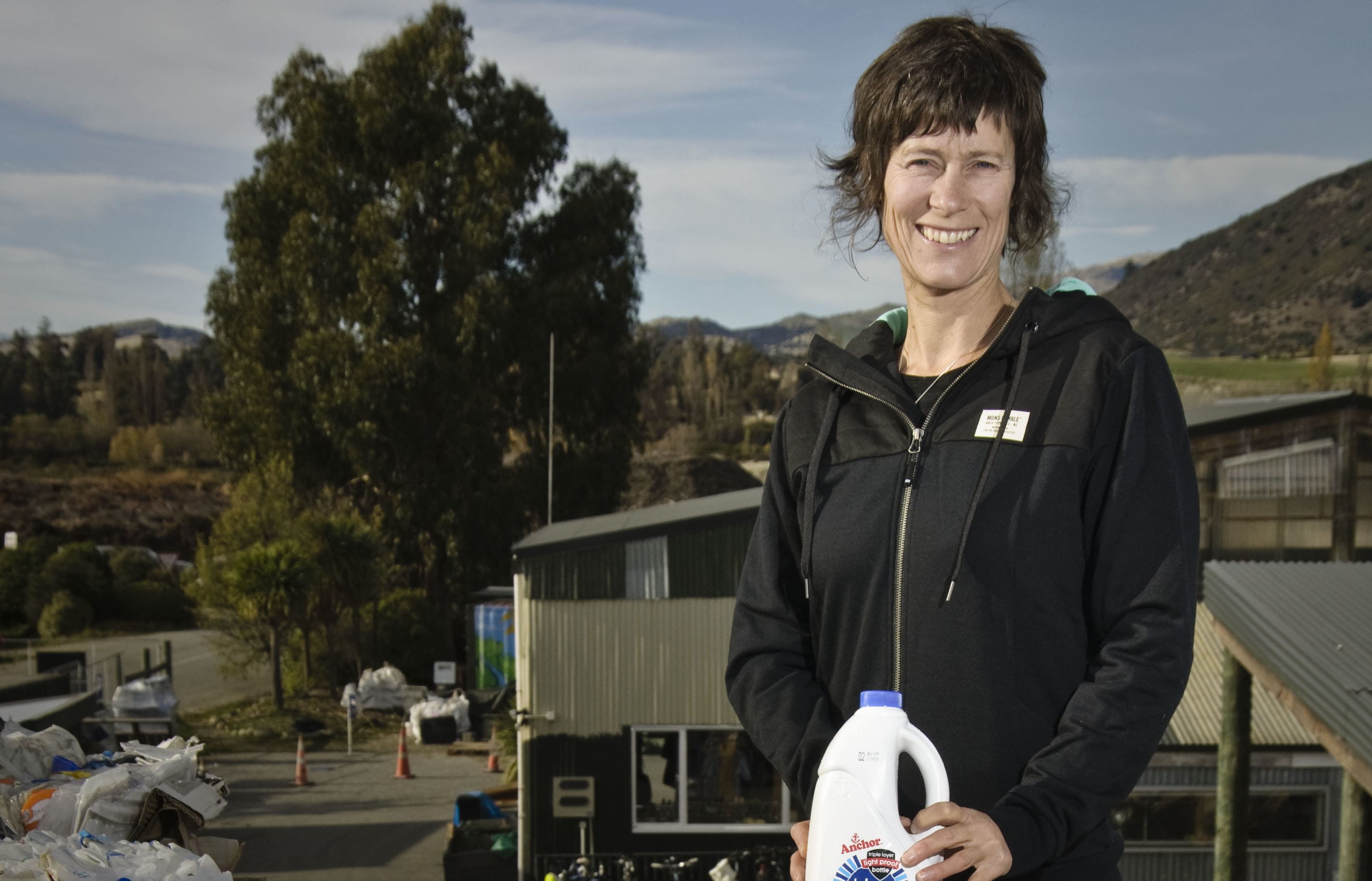New Zealand lacks leadership on recycling and companies that use a lot of packaging need to take charge of their environmental footprints, a community recycling advocate says.

Gina Dempster Photo: Supplied
Gina Dempster, who works with the community recycling initiative, Wanaka Wastebusters, told Nine to Noon that on an individual level, New Zealanders were doing fairly well in terms of recycling.
The most room for improvement was at government and corporate levels, and New Zealand could look overseas for inspiration.
"In the UK, they've recently brought in a charge of 5 pence per [plastic] bag, and that's shown to have a massive decrease in the amount of plastic bags that are used - 85 percent. But we're really lacking a national leadership on waste at the moment, and that's why we're slipping behind.
Not all councils separated glass from other recycling, and Ms Dempster said that order needed to come from the top.
"If glass is collected with the other materials, it becomes very difficult to recycle back into bottles. If your council has set up a separate collection for glass, then it can go up to Auckland and be recycled back into bottles."
"We're really lacking a kind of national leadership on waste at the moment, and that's why we're slipping behind".
Corporations which used excessive packaging - such as individually wrapped prunes - also bore responsibility for their environmental footprint.
"There is quite a movement towards an advance disposal fee ... that would link companies to the packaging that they make, and to the cost of disposing of that packaging. And that would be a great thing, because it would really get them to think about packaging, and about the options that they have."
Auckland Council waste planning manager Parul Sood said the biggest issue with personal recycling in New Zealand's largest city was contamination.
"Contamination with food, or nappies - I don't know why people put them in, but they do - and also plastic bags. Plastic bags are a big no-no for the facility because they get entangled in the machinery ... definitely we do not want plastic bags."
Ms Sood said that included both grocery bags and packaging, such as empty chip packets.
She encouraged companies to be environmentally conscious, and open to progressive ideas.
"There are companies that look at packaging and say, 'how can we do this better?' And they come and ask our recyclers and say, 'what can we do so that this packaging can be recycled?' So [we should get] companies thinking at a design level."
Related stories

